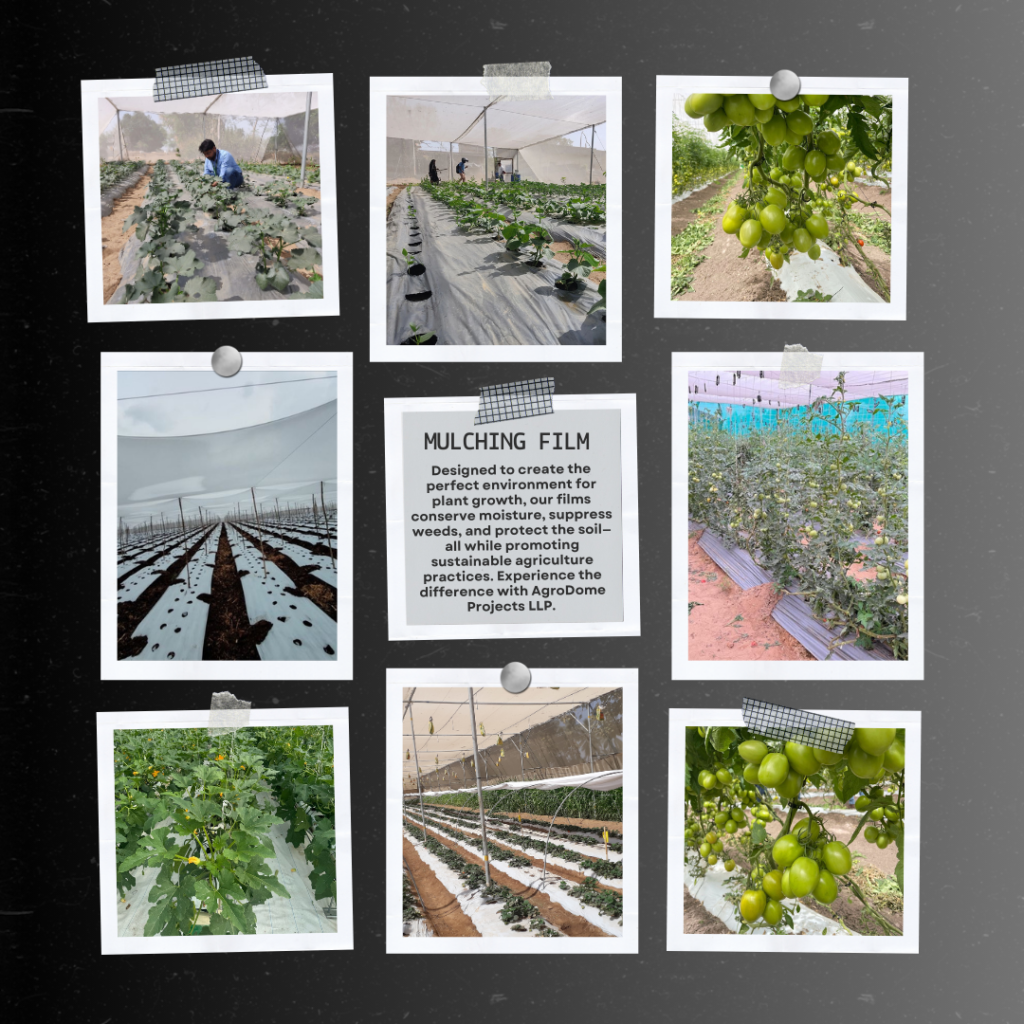Introduction:
In modern agriculture, sustainability is not just a buzzword; it’s a guiding principle. Innovative solutions like mulching films have emerged as a game-changer as farmers and growers worldwide seek ways to minimize environmental impact while maximizing productivity. This comprehensive guide delves into the intricacies of mulching films for sustainable agriculture, exploring their benefits, applications, and the transformative effect they can have on farming practices.
Understanding Mulching Films:
Mulching films are thin, protective covers placed on the soil surface around plants to create a microclimate conducive to growth. Typically made from materials like biodegradable plastics, natural fibers, or even recycled materials, these films are a barrier between the soil and the external environment. By harnessing the power of mulching films, farmers can achieve a range of benefits that contribute to the sustainability and efficiency of their operations.
Water Conservation:
One of the most significant advantages of mulching films is their ability to conserve water. In traditional farming methods, a substantial portion of irrigation water is lost to evaporation and runoff. Mulching films help mitigate this loss by reducing evaporation from the soil surface, thus allowing plants to access moisture more efficiently. Additionally, these films prevent soil compaction, promoting better water infiltration and retention. By conserving water resources, farmers can reduce their water bills and contribute to the broader goal of water conservation in agriculture.
Weed Suppression:
Weeds compete with crops for nutrients, sunlight, and water, posing a significant challenge to farmers worldwide. Manual weeding is labor-intensive and time-consuming, while chemical herbicides may have adverse environmental effects. Mulching films offer an effective alternative by suppressing weed growth naturally. By blocking sunlight and creating a physical barrier, these films inhibit weed germination and growth, reducing the need for herbicides and manual labor. This saves time and resources and promotes a healthier, more sustainable farming ecosystem.
Soil Health:
Healthy soil is the foundation of successful agriculture, yet it is often overlooked in conventional farming practices. Mulching films play a crucial role in soil health by providing a protective layer that moderates soil temperature, prevents erosion, and promotes microbial activity. By creating an optimal environment for soil organisms to thrive, mulching films enhance soil fertility and structure, leading to healthier plants and higher yields. Furthermore, the decomposition of biodegradable mulching films adds organic matter to the soil, further enriching its nutrient content and long-term sustainability.
Crop Protection:
Protecting crops from environmental stressors is paramount in a world increasingly affected by climate change and extreme weather events. Mulching films act as a shield, safeguarding plants from the adverse effects of temperature fluctuations, heavy rain, and intense sunlight. By providing a stable microclimate around the roots, these films reduce plant stress and enhance resilience, resulting in healthier, more robust crops. Additionally, mulching films can protect fruit and vegetables from soil-borne pathogens, reducing the risk of disease and ensuring a higher-quality harvest.
Applications of Mulching Films:
The versatility of mulching films makes them suitable for various crops and farming systems. From large-scale commercial operations to small-scale subsistence farming, mulching films can be adapted to suit various needs and environments. Some common applications include:
- Vegetable Production: Mulching films are widely used in vegetable production to control weeds, conserve moisture, and improve soil health. They are particularly effective for crops like tomatoes, peppers, cucumbers, and melons, which benefit from the warmth and moisture retention provided by the films.
- Fruit Orchards: Fruit growers often use mulching films around trees and vines to suppress weeds, conserve moisture, and protect young plants from temperature extremes. Mulching films can also help reduce soil erosion in sloped orchards and improve fruit quality by maintaining a consistent soil moisture level.
- Field Crops: In field crop production, mulching films can be used to enhance the performance of crops like maize, soybeans, and cotton. By reducing weed competition and improving soil moisture retention, mulching films can increase yields and reduce the need for herbicides and irrigation.
- Nurseries and Greenhouses: Mulching films are commonly used in nurseries and greenhouses to promote seedling growth and protect young plants from environmental stressors. They can also be used to create raised beds or container gardens, providing a controlled environment for plant propagation and cultivation.
The Future of Sustainable Agriculture:
As the global population continues to grow, the demand for food and agricultural products is expected to increase significantly. At the same time, climate change, soil degradation, and water scarcity pose significant challenges to traditional farming practices. In this context, innovative solutions like mulching films offer a ray of hope for the future of agriculture.
By harnessing the power of mulching films, farmers can improve the sustainability, efficiency, and resilience of their operations. From conserving water and reducing chemical inputs to enhancing soil health and protecting crops, mulching films offer a multitude of benefits that align with the principles of sustainable agriculture.
Moreover, as consumer awareness of environmental issues grows, there is a growing demand for sustainably produced food and agricultural products. By adopting sustainable farming practices like mulching film technology, farmers can not only meet this demand but also contribute to the broader goal of building a more resilient and equitable food system.
Conclusion:
In conclusion, mulching films represent a significant innovation in sustainable agriculture, offering a range of benefits that address some of the most pressing challenges facing modern farmers. From water conservation and weed suppression to soil health and crop protection, mulching films have the potential to revolutionize farming practices and contribute to a more sustainable and resilient food system.
As we look towards the future, it is clear that sustainable agriculture will play a central role in addressing the complex challenges of food security, environmental sustainability, and climate change. By embracing technologies like mulching films and adopting holistic approaches to farming, we can build a brighter future for agriculture—one that nourishes both people and the planet.

